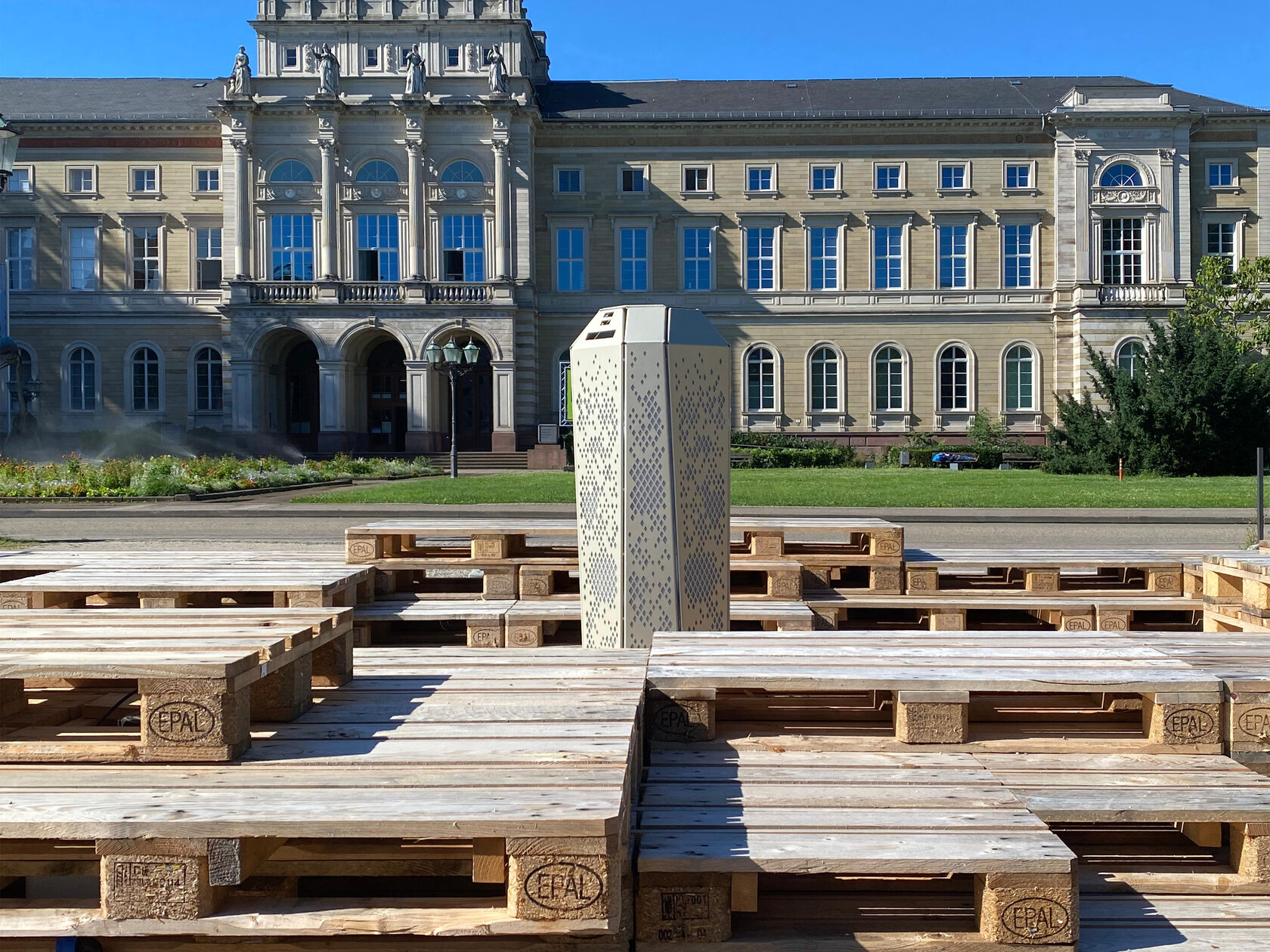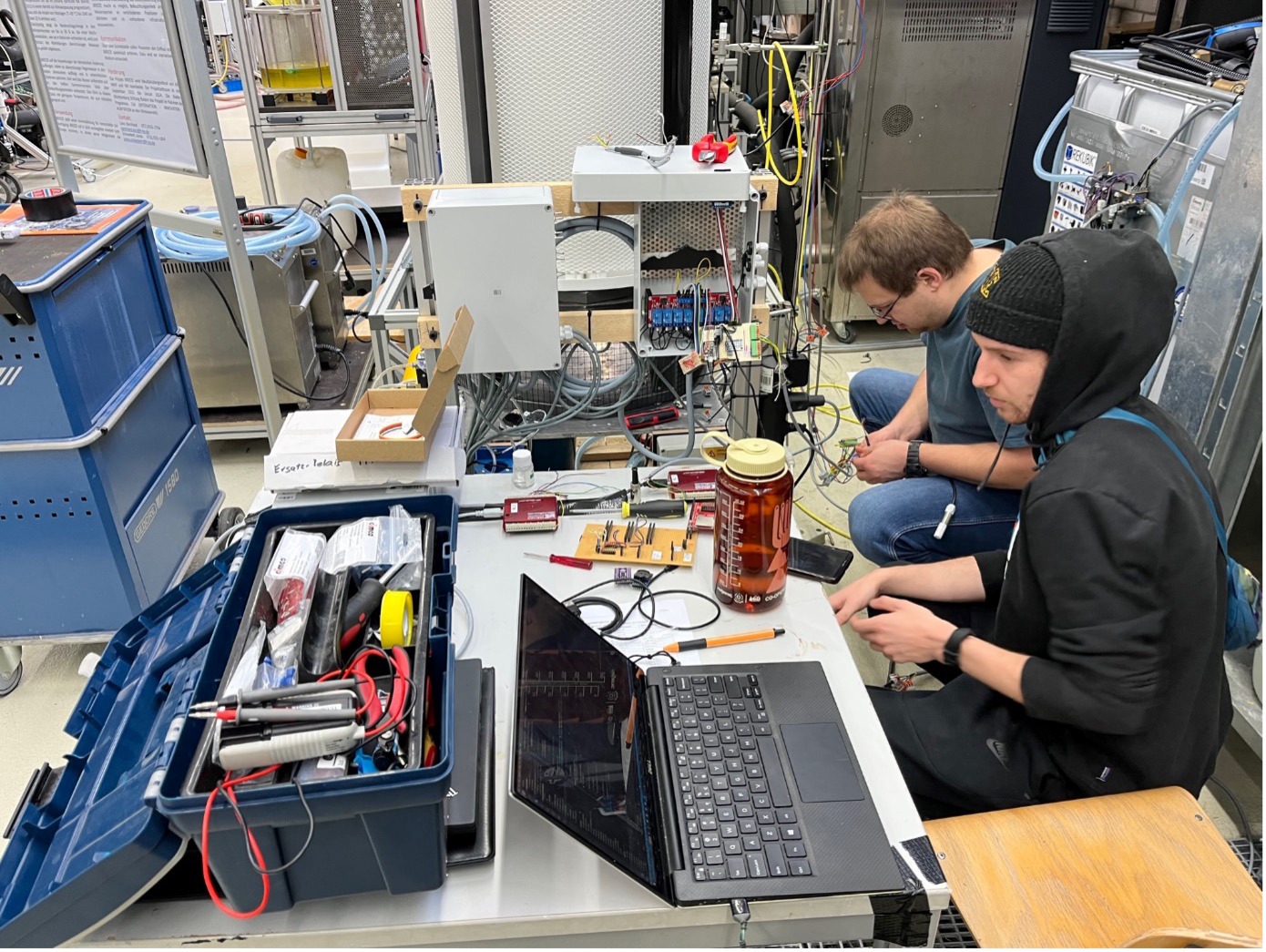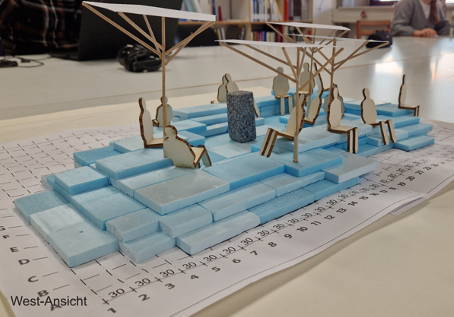In the future, we can anticipate significantly higher temperatures and reduced precipitation during the summer months. Conversely, the cold season is expected to bring increased precipitation and a heightened risk of overwhelming the sewerage system. Additionally, many urban "hot-spots" cannot be sufficiently greened to stabilize the microclimate due to existing underground infrastructure. To address these challenges, a research project led by Prof. Dr. Bernhard Lenz at HKA has developed a comprehensive concept:
Higher winter precipitation can be stored in decentralized underground cisterns and then evaporated and used for cooling in summer via specially developed, multifunctional columns. Urban "hot-spots" can thus be converted into "cool-spots." An initial prototype will be on display until the end of September on a temporary platform designed by HKA architecture students. Built almost entirely from recyclable components, the platform can be subsequently dismantled and rebuilt in a different location.
Friedrichsplatz, right in the heart of Karlsruhe, has been chosen as a temporary exhibition location. Across from the Natural History Museum, visitors can experience firsthand the impact of a 2-3 degrees Celsius temperature difference until September 2024. The official opening ceremony, hosted by HKA Rector Prof. Dr. phil. Rose Marie Beck, took place on July 26, 2024, at 11:30.
More detailed information (in German) on the BREEZE research project can be found on the project webpage .


